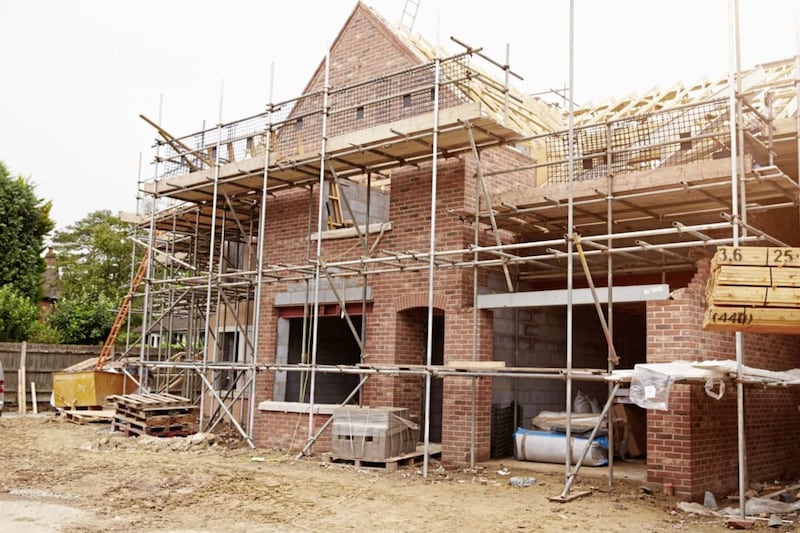THE first brick was laid on fewer new houses in Northern Ireland last summer as building work slowed down, the latest government-produced Northern Ireland Housing Bulletin has revealed.
Between July and September - which covered the traditional 'Twelfth' break for the construction sector - the total number of new dwelling starts in the north recorded by Building Control was 1,973, a dip of 1.8 per cent on the same quarter in 2015 (2,010).
But the total number of new dwelling completions over the same period, at 1,513, was double digit increase on a year earlier (1,348).
The Department for Communities analysis - which contains in-depth statistics on starts and completions, homelessness and NHBC house sales and prices - showed that the average new house price in the quarter to September, at £152,600, was a 3 per cent on the £157,300 figure in the previous three months.
The bulletin showed that 4,924 households presented as homeless to the NI Housing Executive over the period, an increase of 269 or 5.8 per cent from the previous quarter's total of 4,655.
The most common reason reported by those presenting as homeless was that their accommodation was not reasonable (1,071), closely followed by those who reported a sharing breakdown or family dispute (1,017).
The Housing Executive took on 3,096 applicants over the period - way up (15.7 per cent) on the previous quarter's 2,677.
Nicola McCrudden, Chartered Institute of Housing director for Northern Ireland said “These statistics highlight the two very different sides to our housing market. More houses are being built but increasing numbers of people are unable to maintain a home.
“On one hand there has been a welcome improvement in the number of new homes completed, which increased by 12 per cent on the previous year’s quarter. The ongoing recovery of the private housebuilding sector will help to ease pressure on rents and house prices, keeping an affordable home within reach for more people.
“But on the other hand there has been a large increase in the number of households who are homeless and qualify for full assistance, by 16 per cent on the previous quarter.
"This is unacceptable and continues a gradual rise over the previous five years, with increasing numbers of people with complex needs such as addiction and mental health problems."
She added: “We’re likely to see more people becoming homeless unless urgent action is taken.
"The Housing Executive has responsibility for addressing the problem but we need a change in the law to not just tackle homelessness, but to prevent it from happening in the first place with more resources for early intervention and support for vulnerable people.”




